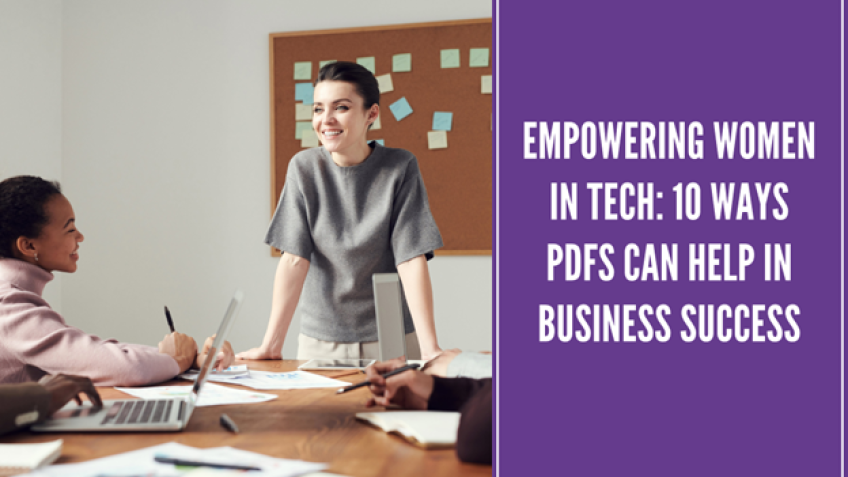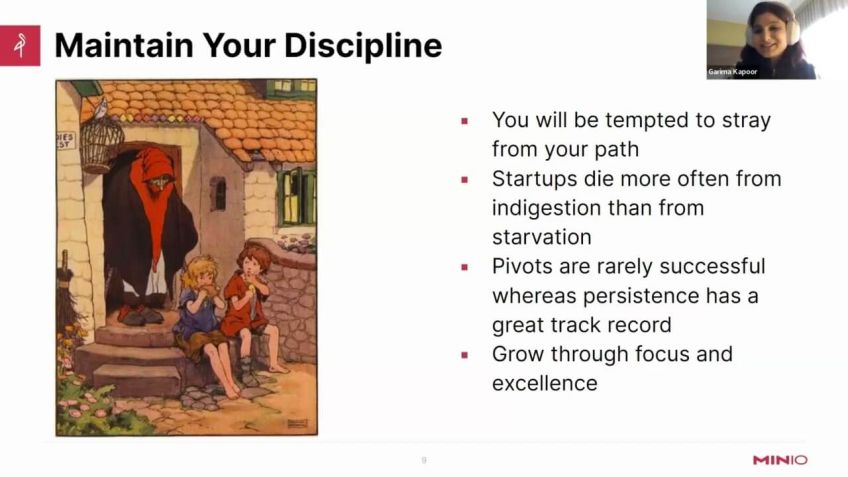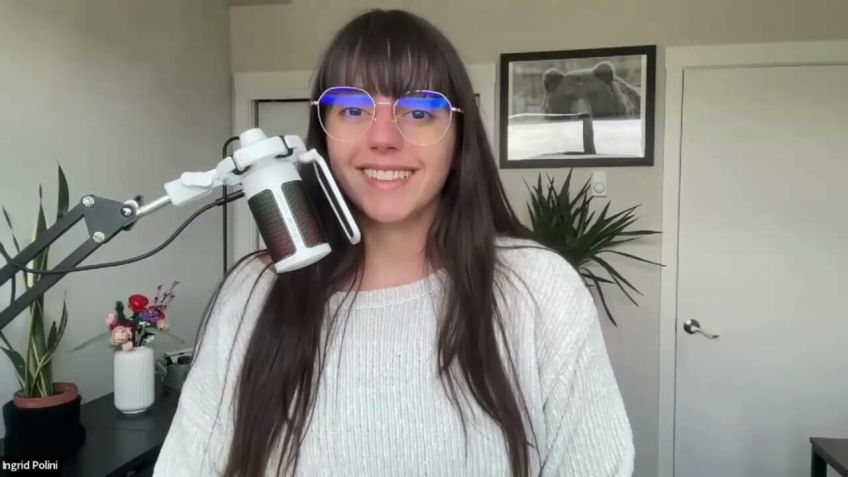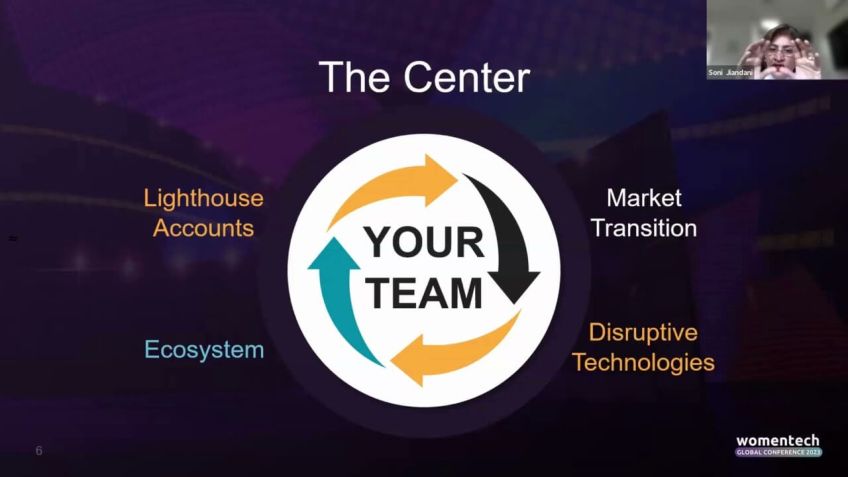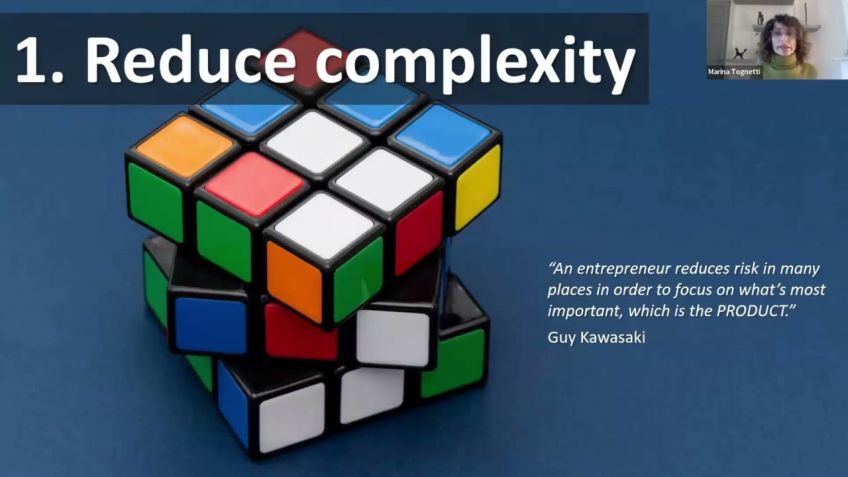Susanne Althoff - How to Be a Better Ally for Women Entrepreneurs Apply to Speak
Supporting Women Entrepreneurs: Being a Better Ally
Hello, everyone! I'm Suzanne Alto, and I'm thrilled to share some insight with you today on how to be a better ally for women entrepreneurs. I've spent the last five years researching the hurdles women entrepreneurs face and how they achieve success. My findings are compiled in my new book, "Launching While Female".
Introducing Suzanne Alto
As a journalist turned associate professor at Emerson College, my research focuses on women entrepreneurs and non-binary entrepreneurs. In addition to teaching publishing entrepreneurship, I bring to the table five years’ experience in researching gender-based issues in entrepreneurship.
Importance of Women Entrepreneurs
Despite comprising a significant percentage of the entrepreneurial demographic around the globe, women entrepreneurs often face an entrepreneurial gender gap. They have limited access to start-up capital, leading to slow or no growth.
Challenges Women Entrepreneurs Face
Unfortunately, the gender gap extends to other areas as well.
- Women-owned businesses tend to generate less revenue and employ fewer people compared to businesses owned by men.
- Less than 3% of yearly venture capital investment is given to women entrepreneurs in the United States, a figure that’s even lower for black and Latinx women.
- My research also discovered numerous instances of bias discrimination, microaggressions, and difficulties in finding mentors and sponsors.
- Often, women entrepreneurs are asked inappropriate questions about their personal lives, which male entrepreneurs are not subjected to.
- Lastly, many also reported experiencing sexual harassment and assault from investors, bankers, vendors, and customers.
The Impact of the Entrepreneurial Gender Gap
It is crucial to address the entrepreneurial gender gap because it weakens the economy, slows down the formation of new companies and therefore innovation, leaves many needs unsatisfied, and decreases job growth.
Five Ways to be a Better Ally for Women Entrepreneurs
Here are some practical ways you can make the entrepreneurial space more accessible, more equitable, and more inclusive for women.
Combat Microaggressions
Microaggressions are small, often unintentional, insults or dismissals which can accumulate and have detrimental effects. By speaking out when witnessing microaggressions, you can help counteract them. Engaging in micro affirmations - small acts that affirm and uplift others - can also help to counteract microaggressions.
Support Women-Owned Companies
One way to actively support women entrepreneurs is by directing your spending towards women-owned companies. This way, you can help foster growth in these businesses and contribute to a fairer business environment.
Participate in Crowdfunding and Angel Investing
Crowdfunding and angel investing are great ways to support women entrepreneurs, especially those from underrepresented backgrounds. By contributing financially, you can help these entrepreneurs bring their innovative ideas to life. Remember, every little bit helps!
Demand Representation
Encouraging representation is an important part of being an ally. Make sure women entrepreneurs are getting the resources, recognition, and opportunities they need. Speak out when representation is not equitable and challenge your own biases.
Push for Policy Changes
Lastly, consider advocating for policy changes that could alleviate some of the hurdles faced by women entrepreneurs. This could include universal health coverage, student loan relief, and subsidized childcare, among others.
Thank you for taking the time today to learn more about how you can support and uplift women entrepreneurs. I encourage you to take actions big and small to make a difference and create a more inclusive entrepreneurial community. If you have any further questions or comments, please feel free to get in touch!
Video Transcription
Hello, everyone. Uh So happy to be here today. I'm Suzanne Alto. Thank you so much for, for dropping in or, or listening to the recording of this session. How to be a better ally for women entrepreneurs?I'm gonna be offering you ideas for things that you can do right now to support the women entrepreneurs and non binary entrepreneurs who are in your community. Um I will leave time at the end if there are any questions. If at any time a a question occurs to you, please drop it in the chat and I will do my best to answer um those that I can. Uh First, I'd like to introduce myself and tell you how I came to do research on entrepreneurship. I'm a journalist by training for the last five years. I've researched women entrepreneurs and other underrepresented entrepreneurs in the US. And I've collected my findings in my new book launching. While female, I set out to write this book because I wanted to find out what hurdles these entrepreneurs face, how they found success and what needs to change, to make the entrepreneurial space more successful, more accessible and more inclusive. I interviewed more than 100 women and non binary entrepreneurs in multiple industries across the United States. I also interviewed for my book experts on new business formation, mentorship and and other subjects.
Um And while my research focuses on the U SI, want to emphasize that the issues that I will be talking about this idea of an entrepreneurial gender gap, this happens globally and the ideas of allyship that I'm going to be offering are, are also ideas that will work anywhere in the world.
Um So, in addition to being a book author, I'm also an associate professor at Emerson College in Boston, where I primarily teach publishing entrepreneurship. I've been doing that for six years and before that I had a two decade career as a magazine editor. My last post which I held for six years was as editor in chief of the Boston Globe Sunday magazine. And finally, I have a master's degree in journalism from Columbia University. So let me, let me set the stage first and, and talk a moment about women's entrepreneurship. Um Women in the US and around the globe show an intense interest in starting and running business. So that that point is not in dispute at all. Um in, in the US, in particular, women and women of color are responsible for a surge in new business. Um So, so that's, that's the good news. Um There, there are challenges though, however, as I've mentioned just a minute ago, there is an entrepreneurial gender gap that we see around the globe. Um Women overall have access to less start up capital and, and researchers say this is a, this is a big deal that researchers have found that companies that have access to less start start up capital, they grow more slowly or they don't grow at all. Um In addition, women owned businesses tend to make less revenue and employ fewer people when compared to businesses owned by men.
Um To give you one example just recently, the US Chamber of Commerce, it did a poll in August and found that the pandemic has taken a heavier economic toll on women owned small businesses than those owned by men. This poll also found that women's firms expect a slower, weaker recovery than firms owned by men. Um One example that I'd like to give you about this idea of women having access to less start up capital is venture capital. Um For years, women in the United States have received less than 3% of the venture capital investment that is given out each year. Um For the numbers for women who are black and Latinx are are even lower than the 3% figure. Um And during COVID, the number has gone down even more. Um So that's venture capital, venture capital is not suited for every business, of course, but even in other funding venues, we, we see these gender disparities, we see it in, in banking in loans. Researchers have found that women tend to have higher interest rates and are asked for for more collateral. Women's gender pay gap also affects the amount of money that they will have stored away when they begin their business. Um In addition to the gender pay gap, we also see in the United States, a racial pay gap and a racial wealth gap. So again, limiting the amount of money that someone might have to use to start their business.
Um So that was, that was a highlighting of funding. There are other challenges of the women and non binary entrepreneurs that I interviewed for my book, uh told me that they experienced several hurdles and, and research backs up what I was hearing um from my interviews that that these hurdles are, are common and they, they appear again and again, for example, women and non binary entrepreneurs experience bias discrimination, microaggressions.
Um They have their expertise, questions, they could make it prime questions about when they will get pregnant. Will they ever get pregnant? Will they get married? Um You know, these are questions that male founders never report receiving. Um many women entrepreneurs don't like the term mom prene.
They feel it's dismissive and of course, we never hear the the term dad preneurs. Uh The the entrepreneurs I interviewed also told me that they struggle to find mentors and sponsors. Uh Sponsors take a more active role than mentors. Um Sponsors are the people who make introductions vouch for someone's good work or good ideas. They, they bring someone to the table who might otherwise not have that seat at the table. Um So sponsorship is, is really important. Um Women and non binary entrepreneurs report that they do not find the sponsors they need. Uh part of what's at work here is a mini me syndrome. So what this means is sponsors have, excuse me, researchers have found that sponsor are drawn to proteges who remind them of themselves, who proteges who share their gender and their race. This, this is problematic because most people who would be an ideal sponsor, let's say a company CEO or a senior level executive, uh these ranks are dominated by white men. So they are um because of the thinking of the Mini Me Syndrome, they're drawn to helping white male entrepreneurs grow their businesses.
Um You, you see other hurdles on your screen that, that I've highlighted in my book and that I found in my research, I, I'll highlight one more just now and that is um women told me that too often they experience sexual harassment and assault. And this was coming from investors from bankers, vendors, customers. It was um a widespread uh if, if there are any entrepreneurs who are attending and you would be willing to add to the chat, any uh hurdles that you've experienced or that you've seen, I I would love for you to do that. Um So let me take a moment to say why this matters. Why, why does it matter that there is an entrepreneurial gender gap that we see in the United States and around the world? And it, it matters because we are left with a few things that affect all of us. We are left with a weaker economy, we are left with fewer new companies that means less innovation. There are unmet needs that are not being satisfied. Um It, it means slower job growth uh on, on my the screen, I cite two examples of the statistics that are available that show what would be the potential.
If we saw full entrepreneurial participation from everyone, the kinds of job growth, we would see the kinds of company growth we would see. Um So, so it matters and, and it's, it's significant but, but the important thing to note is there are things that we can do to make a difference. There's things that we can do to make entrepreneurship more accessible, more equitable, make the playing field uh more even if possible. Um And these things that, that we can do, there are things that need to be done by individuals, by the business community, by universities, by uh governments at all levels. Um local state, federal. Um But so today though I'm going to highlight for you just that, that for five of the things that you can do as an individual to, to make the entrepreneurial space, more inclusive, more equitable. Um And, and as I mentioned, I detail more in my book, but I'm just gonna these five that I'm going to tell you about, I feel confident you can act on right away, which is why I've chosen them.
Um So, number one, I'm I'm asking you to, to, to see if you can combat microaggressions. So, um if you're less familiar with the term of microaggressions, these are the endless stream of little insults. Uh In addition to insults, dismissals put downs, you know, off color jokes and these are lobbed at women um at people of color, people with disabilities, many groups are at the receiving end of microaggressions. A single episode of M of a microaggression can appear small, right?
And, and the person might say, you know, oh I didn't mean any harm or it was just a joke. But, but microaggressions have power when they, when someone feels them day after day when you know, they're working as an entrepreneur and, and they're, they encounter these microaggressions as they move about their world. Um And to give you one example, when I was doing interviews of women entrepreneurs who also had male co-founders, they told me that investors tended to, to direct all of their questions to their male co-founders. The investors were reluctant to make eye contact with them. So this is a great example of a microaggression. Um Researchers have found that microaggressions have a negative, negative impact on people, they slow their advancement, they damage their confidence, they may um convince them that they should give up on their business idea. So, um so here's, here's two things on the screen that I'm that I'm suggesting that you should do. Um Both of them are inspired by the work of Mary Rowe who is an mit researcher and economist who has studied microaggressions as well as a related field micro inequity. She studied this for decades.
Um She points out how important it is that when we witness some kind of microaggression that we use our voice and speak up if, if someone's being belittled, if someone is not being listened to, you know, what if, if we have power and some, a little bit of social capital that we use it.
Um Another technique that, that Mary Rowe has talked about is micro affirmations and micro affirmations are these small little acts that you do either publicly or privately and they work to counter the effects of microaggressions. So you are, you know, telling someone, I believe in your work, um You are spreading on social media, how important their company is. Um All the innovations that they are are making. Um you, you bring that person to a meeting or, or introduce them, someone who they might otherwise not know. Um And you're just, you're a cheerleader for them. Um Mary Rowe notes that these micro affirmations may ameliorate microaggressions. Um And they also if you are doing them publicly, you are modeling good behavior that other people will hopefully copy. Um uh I think we um many of us have an experience of hearing a woman in a meeting, bring up a good idea that is ignored. And a few minutes later, a man brings up the same idea and now people are, are interested um a, a way that you can use micro reformation is to say, you know, uh Sandra uh shared that idea five minutes ago, I'd love to hear more details from her. So, you know, whatever you can, whatever you can these small steps to, to combat what's happening with microaggressions.
Um Next thing that I'd ask you to think about as an ally is directing some of your own money to women owned companies or, or other companies owned by underrepresented entrepreneurs. Um One of the, the people that I really enjoyed meeting for my book was Doctor Sophia Yen. She is the founder and CEO of Pandie Health, which is an online service that prescribes cells and delivers birth control. Um There are a few companies that, that have male order, birth control. Hers is the only one that offer that is women founded and women led Dr Yen points out if you have a choice between several companies and one is woman owned and one is man owned to please consider driving your dollars to the women owned company. This is, this is part of the shop, your values movement on the screen. I've listed several ideas of organizations that help you find women owned businesses that help you make these more educated uh consumer choices. Uh One of my favorites is on the screen. Buy from a black woman, which is a nonprofit located in Atlanta, Georgia, which has an online directory where you can find black women owned businesses. Um If, if you are an attendee and you know of any other organizations that help people with these consumer choices, please please drop your ideas in the chat. The next idea that I'd like to, to encourage you to think about as an ally is engaging in crowd funding.
Uh crowdfunding deals with small dollar amounts. Uh This is uh usually used by entrepreneurs at the early stages of their company founding. If you are in a financial position where you can make these small dollar investments in companies or, or gifts to companies, I would encourage you to, to consider crowdfunding that is specifically directed at companies owned and operated by women or other underrepresented entrepreneurs.
The example that I give you on the screen is Black girl ventures, which is a, a crowdfunding site started by Shelley Bell and it specifically lifts up entrepreneurs who are black women and who are brown women. Um If, if you want to take it one step further than crowdfunding, I would ask you to, to consider angel investing, which is a larger dollar amounts um There are many organizations that help people direct their angel investments again to women entrepreneurs or non binary entrepreneurs or entrepreneurs of color.
Um And, and this is, this is could make a big difference um as an ally to also ask you to consider demanding representation are the women entrepreneurs and the non binary in your community receiving the attention and, and the um the funds and the other resources that they need.
Um The example that I have on the screen is Mass Challenge, which is a well known early stage accelerator based in Boston. But with the offices around the world when they changed, who sits on the judging panel when they brought in more women judges, more women founded start ups were accepted into the program. So it proves that who sits on the judging team, who is making decisions about events, this matters. Um You know, certainly if you are an organizer of any of these events, you use your power. But, but even if you're just a participant or an attendee, you know, ask who's speaking is it? Are, are women entrepreneurs are, are non binary? Entrepreneurs, are entrepreneurs of color represented? Are they getting the news stories that they need? And if you're not seeing um the representation that we should be seeing that, that you use your voice and, and demand, demand change. Finally, the last thing I'd like to ask you to think about as an ally is pushing for bigger changes. So this is using your voice to talk to politicians and tell them why certain policy changes are important for entrepreneurial activity. The three that I list on the screen, universal health coverage, student loan relief and subsidized childcare.
All of these have been shown by research to have an effect on activity. For example, universal health coverage. Uh Researchers have found that if if if a would be entrepreneur has employer sponsored health care at the moment and they are thinking about leaving their job to start a company, but they worry about the accessibility of health care. They will be less likely to start that company.
Um Same thing goes for student loan relief or uh women have more, hold more student debt than men. Black women hold the most student debt of all. And researchers have found that having student debt reduces the likelihood that you will start a company or it will prevent your company from growing as fast as it can. Um So again, these, these are all ideas that, that we are talking about now um in the United States around the world, but they really need the um outspoken support from, from voters in order for us to see change. So I, I hope you will consider speaking up about a few of these. Um So I, I hope I offered you some ideas of things that you can think about in the idea uh along the lines of being an ally for women entrepreneurs. I've, I'm sharing here my email address and my website. If you'd like to get in touch with me or continue the conversation, as I mentioned, my book launching wild female, uh, goes into these subjects, uh, a little bit more deeply. Um, but I'd love to, to connect with you by, um, by email or, um, in some other way. Um, I'm gonna check the chat as quickly as I can to see if there are any questions. I know we just have a few minutes.
Um I don't see any questions. Um The other thing that I would ask you, well, I'll actually, I'll go back to angel investing. Um And, and in the meantime, if you want to add a question, please do. Um There are several groups that teach people how to be angel investors and they specifically uh the these groups uh like pipeline angels portfolio work to, to teach women and non binary people how to be angel investors. So this is, you know, I understand that this is something for later in your career when you have more financial resources. But um if, if we have more uh a diverse group of angel investors, the thinking of researchers is that more a more diverse group of entrepreneurs will receive the benefit of those um of that, of their investment dollars. Um I would also, I noted earlier in my talk, the lack of mentorship and sponsorship. Um I would encourage you no matter where you are in your career and, and no matter how much experience you have. Um I imagine that you have some expertise to share with someone um social media expertise, uh proofreading, copying expertise. Um These are all kinds of things that, that women entrepreneurs and other underrepresented entrepreneurs could benefit from if you offer your, your assistance and your mentorship.
Um and, and simply speaking out about the need for more mentorship and sponsorship will make a difference. Um Oh, I'm and I realize I'm just looking at the wrong um chat area. Um Mary Ann, you talk about universal health coverage. Um I thank you for, for noting your own personal experiences. Um This, this will make a big difference to aspiring entrepreneurs. Um All right, I um I'm at AAA the end of my time. Thank you so much for, for listening today and I would love to hear from you if you would like if you have further questions or um in any way, want to continue the session or continue these topics. Um Thank you so much everyone and, and I appreciate your comments in the chat, take care.

